I recently finished Speed of Trust: The One Thing That Changes Everything by Stephen M.R. Covery. This book is packed with nuggets you can use in your personal and professional life, with lessons that apply to both one-on-one and team relationship building. It would take several blogs for me to tell you everything you need to know about what Stephen calls the “economics of trust” and its effects on the speed and the cost to relationships and organizations. I highly recommend you give it a read (or a listen, if you are an audible user like I am).
When I am reading impactful books with several proven concepts that point to success, I like to see how those concepts can be translated to marketing and branding. I am going to take just a few of Stephen’s points and talk through how it applies to building and keeping brand trust. Now I am not normally a fan of building relationships – and especially something as important and impactful as trust – the fast way. Typically, to truly build trust and relationships, it takes time and effort to do it right. This is why I am always skeptical when someone puts “speed” and “trust” in the same sentence. But one thing I am very sure of is this: you can break trust very quickly, and it typically takes time to build back. You must pay a “trust tax”, as Stephen calls it, to get back what you have lost!
I also agree with his statement that low trust slows everything and every relationship. Think about a relationship where you know there is high trust – does communications flow quickly and freely? Do you work together to get things done quickly, or is it drawn out and painful? If it takes longer, there is a likely a lack of trust. When trust is present, it produces momentum and increases communication and effectiveness, thus equating speed. Trust is the one thing that affects the trajectory of our lives, and if it is removed, will dissolve even the most successful of businesses.
Here are a few takeaways from the book that are worth your consideration:
- Trust is based on character motive and intent with people. Leadership is getting results in a way that inspires trust. Trust often ignores shortcomings, but if motive or ethics don’t align, you’ll quickly lose that trust in even the most regular of customers.
- Little things count! If you follow through with the little things, it will go a long way to building trust, but if you take constant withdrawal from the trust bucket it will leave you empty.
- Brand trust can not be based on character only, but focused must also focus on ethics. If your brand’s character is good but is falling short in the area of ethics to get there, you can expect the brand to struggle to have longevity. Cheaters don’t continue to win. Ethics is always good for our society and brands.
- People trust those who get things done. If your brand promises communicated and kept you will build brand loyalty and super fans. But if you are constantly breaking your brand promises and letting customers down, you will pay a trust tax that equates to loss of sales and repeat business.
- Results are vital to gaining trust. If you make promises to – for example – provide fast, affordable internet and fail to keep to the quality of service you promised, you will not be able to keep up with the chern. You will lose more customers than you gain because the truth about what you are actually delivering will get out. Don’t overpromise and underdeliver. People are more likely to give grace when you have some short term failures if you don’t promise to never fail. When you keep your brand promise you build trust.
- Do the right thing… get it done. If you somehow fail to live up to your promise, do the right thing. Credit the customer for time lost. Apologize to your team for not doing your best and not getting them what they needed to get their jobs done well. Then correct where things have gone wrong and start again. No one is going to be perfect all the time, so look at your failures as a learning experience. Most great comebacks come from failures where big lessons were learned and applied.
- You can’t pass the buck. Recognize and acknowledge the problem and don’t try to pass blame on to someone else. If you think the problem isn’t there, that is the beginning of the problem. As leaders you have to own it and learn from it.
- There is no room in this economy for blind trust. You have to earn smart trust to keep building a super brand. People won’t continue to come back if you keep letting them down. They will find someone else that will deliver what they want even if they have to pay more to get it.
- Regaining trust is possible – damages may mean that you may never fully trusted again, but for the most part, you can begin to earn trust back – provided the same failures don’t rear their ugly heads again! If you are truly sorry, then be sure it doesn’t happen again. The consumer expects the CEOs and owners to take the lead to restore trust, so they should be the voice behind building it back.
- There are no moral shortcuts in life if you want to be successful! You must do the hard work to build and keep trust.
Covey shares four core criteria for increasing the speed of trust that can be used in your personal and professional life.
- Integrity: It means honesty, walking your talk, having the courage to act in accordance with your values. Most massive violations of trust are violations of integrity.
- Intent: Motives, agendas, and resulting behavior. Mutually benefit and genuinely care about those we interact with and serve. Trust grows when our motives are straightforward.
- Capabilities: Or TASKS (Talents, Attitudes, Skills, Knowledge, Style). What you are using your gifts and talents to accomplish? You build trust by using your strengths to increase your capacity. Keep learning and evolving those TASKS to stay relevant!
- Results: Execution and delivering the results that are promised. Don’t make commitments and promises that you can’t keep.
These four core points can quite literally be your marketing blueprint for winning clients and customers. Focus on what you can do to make the biggest difference for you and those you are trying to build trust with. Say what you mean and mean what you say. Your actions will speak volumes. Don’t say you care about a cause without applying those same values in your daily practice. Let your actions match your promises so that you can build trust and avoid paying the “trust tax”. Counterfeit behaviors of straight talk, such spinning to get wins, may get your short term goals – but these sales tactics will ultimately come back to bite you. Just be authentically you. Slow and steady builds trust fast, especially when you avoid over promising and under-delivering. Remember: hope is not lost if you do fail, because we are all human and stuff happens. Quickly take ownership, pay the tax, and start the hard work of building back the trust of those you lost.
If you need help navigating the economics of trust, we would love to help you spark an authentically you-nique marketing and PR blueprint.

